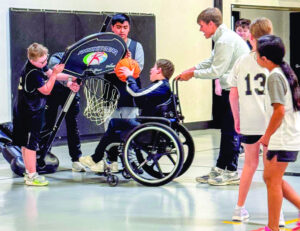June celebrates Alzheimer’s, Brain Awareness Month
June is Alzheimer’s and Brain Awareness Month. The Alzheimer’s Association established the Alzheimer’s and Brain Awareness Month in 2014 to encourage everyone to take charge of their brain health.
The Alzheimer’s Association is a worldwide voluntary health organization dedicated to Alzheimer’s care, support and research. Its mission is to lead the way to end Alzheimer’s and other forms of dementia by accelerating global research, risk reduction, early detection and maximizing quality care and support.
The Alzheimer’s Association made the following suggestions to take charge of brain health.
- Incorporate healthy habits that may reduce cognitive decline.
- Be proactive in addressing memory, thinking problems and discussing them with a doctor.
- Learn early warning signs of cognitive decline such as altered judgment, mood changes, memory loss and challenges in decision-making, planning and carrying out projects. Some memory changes can be a normal part of aging but when changes start to interfere with daily living, it’s best to get checked.
The existing Alzheimer’s Accountability Act is set to expire in 2025. There are two bills in Congress which are very important to families with Alzheimer’s – the National Alzheimer’s Project Act and the Alzheimer’s Accountability and Investment Act. Because the General Federation of Women’s Clubs are dedicated to enhancing the lives of others through volunteer service, they are advocates of advocacy efforts for awareness and research.
If passed, this legislation would reauthorize programs and increase federal research funding to ensure that individuals living with Alzheimer’s and other forms of dementia, as well as their caregivers, would have access to better quality care and support services. The personal and financial toll can be overwhelming to families, businesses and our healthcare system.
The bipartisan Alzheimer’s Accountability and Investment Act (H.R. 620, S. 134) would continue to prioritize Alzheimer’s and other dementia research funding at the National Institutes of Health.
With steady investment, scientists will be able to work faster to advance basic disease knowledge, explore ways to reduce risk, uncover new methods for early diagnosis and drug targeting and develop potential treatments.
Nearly seven million Americans are living with Alzheimer’s. By 2050, this number is projected to rise to around 13 million. Alzheimer’s disease was the fifth-leading cause of death among people age 65 and older in 2021. Volunteers and other forms of support of federal research funding are needed to help make a difference in the lives of people facing Alzheimer’s and other forms of dementia.








